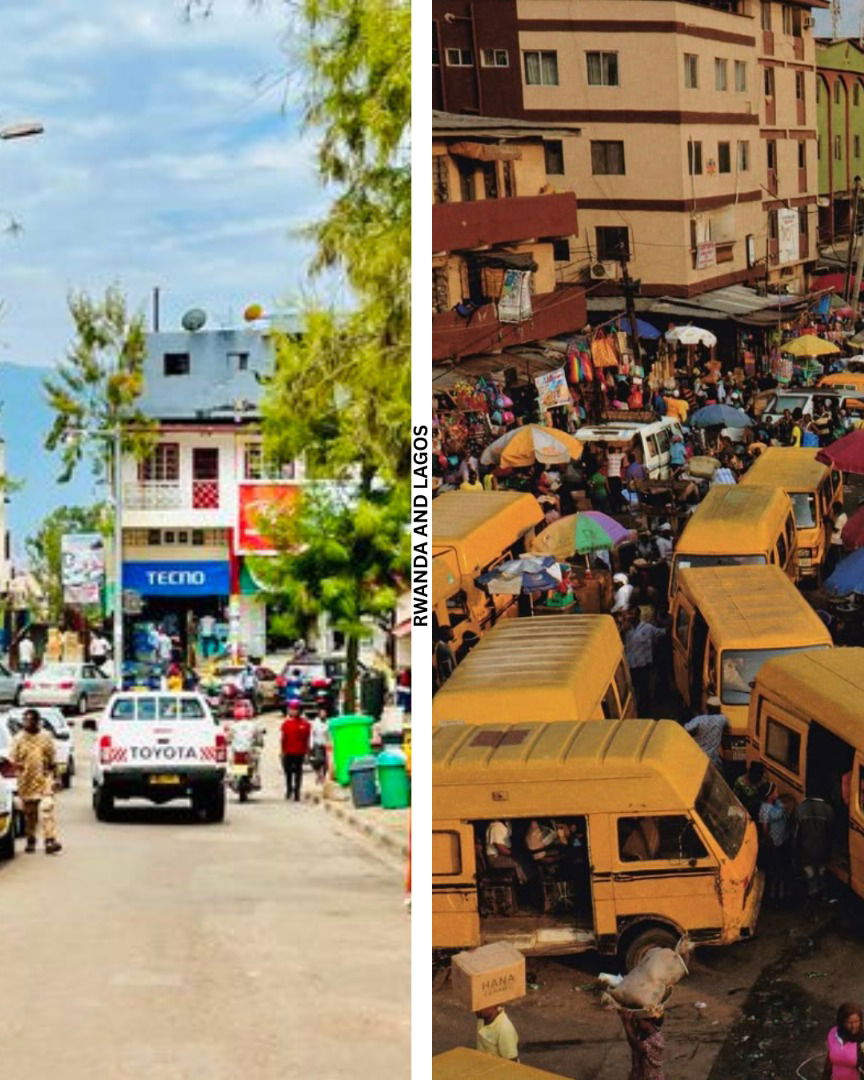What Nigeria Can Learn from Rwanda: A Personal Observation from My Travels Across Africa

Traveling across Africa has offered me a deeper appreciation of the continent’s diversity not only in terms of culture, language, and landscape but also in how countries approach urban development and environmental management. One country that stood out during my recent travels was Rwanda, and in particular, its capital, Kigali. What struck me most was the city’s exceptional level of cleanliness and order. Kigali is not just clean by regional standards; it is clean by global standards.
Coming from Lagos, Nigeria, a dynamic and culturally vibrant metropolis, the contrast was striking. Lagos is a city full of energy, innovation, and ambition, yet it faces serious environmental challenges most notably in the areas of waste management, pollution, and public sanitation. Reflecting on my experience in Rwanda, I found myself asking an important question: What lessons can Lagos, and other African cities, learn from Kigali’s environmental success?
1. Community Service: The Power of Umuganda
One of Rwanda’s most impactful initiatives is Umuganda, a mandatory national community service day held on the last Saturday of each month. During Umuganda, citizens including government officials participate in communal activities such as cleaning streets, unclogging drainage systems, and planting trees. This collective effort fosters a strong sense of civic responsibility and national pride.
In Lagos, a similar initiative could be adapted and implemented at the local government level. Regular, organized community clean-up days, supported by government and private stakeholders, would not only improve public hygiene but also strengthen social cohesion.
2. A Plastic-Free Environment
Another notable aspect of Rwanda’s environmental policy is its ban on non-biodegradable plastic bags, which was introduced in 2008. This bold move has significantly reduced plastic pollution across the country. Even tourists and visitors are required to surrender plastic bags upon entering Rwanda a testament to the nation’s commitment to environmental sustainability.
In contrast, Lagos continues to grapple with plastic waste clogging drains, littering streets, and polluting its waterways. Introducing a gradual ban or imposing stricter regulations on single-use plastics paired with viable alternatives and public education would be a significant step toward a cleaner Lagos.
3. Effective Waste Management Systems
Kigali has established a well organized waste management system involving regular waste collection, recycling, and composting. Both public and private sectors work in partnership to ensure that waste is efficiently handled.
In Lagos, many areas still lack consistent waste collection services, especially in low-income neighborhoods. To address this, the government could invest in more robust infrastructure, promote recycling initiatives, and incentivize small- and medium-scale waste management businesses. Empowering communities to take ownership of their local environment is equally essential.
4. Urban Planning and Green Infrastructure
The urban layout of Kigali is clean, well-maintained, and integrated with green spaces. Roads are clearly marked, traffic is regulated, and public spaces are respected and preserved. This attention to detail in urban planning plays a significant role in maintaining the city’s cleanliness.
Lagos, as it continues to urbanize, must prioritize sustainable city planning. Investments in green infrastructure such as parks, walkways, and tree-planting programs can enhance the quality of life for residents while also improving environmental conditions.
5. Cultural Values and Civic Responsibility
Perhaps the most profound difference I observed in Rwanda was the cultural attitude toward cleanliness and civic duty. Cleanliness is not enforced solely through regulations it is ingrained in the national identity. Citizens take pride in keeping their environment clean, and leaders are expected to lead by example.
In Lagos, cultivating a similar culture of environmental consciousness through schools, media campaigns, and community outreach can shift public attitudes over time. Leadership at all levels must not only enforce environmental policies but also model the behaviors expected of the public.
A Clean City Is Possible With Will and Action
My travels have shown me that cleanliness is not a luxury reserved for a few privileged countries it is a choice, supported by deliberate policy, public engagement, and strong leadership. Rwanda’s model demonstrates that sustainable urban cleanliness is achievable, even in the face of limited resources.
Lagos has the potential to transform itself into a cleaner, healthier, and more livable city. The tools are within reach; what is needed now is the collective will by the government, private sector, and most importantly, the citizens. If Rwanda can do it, so can we.


